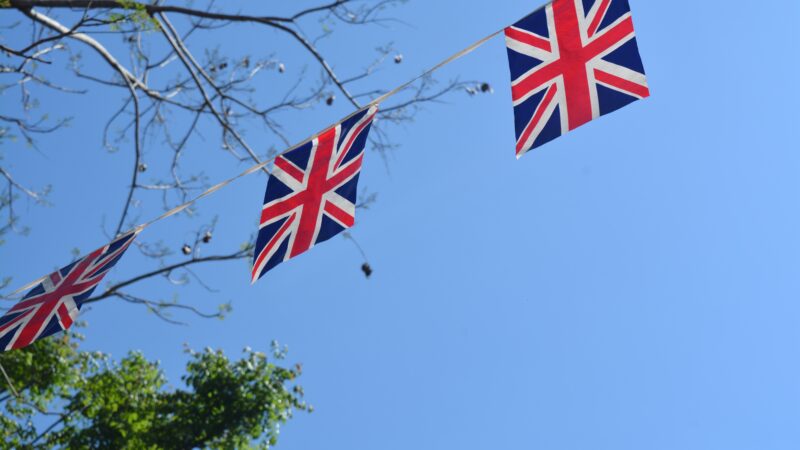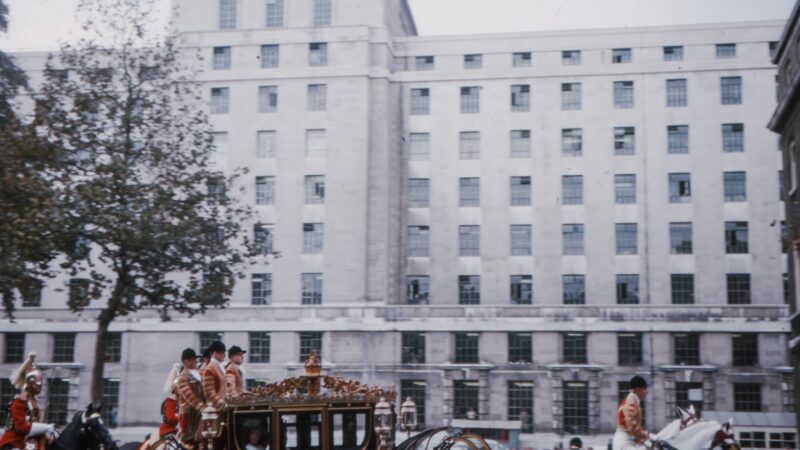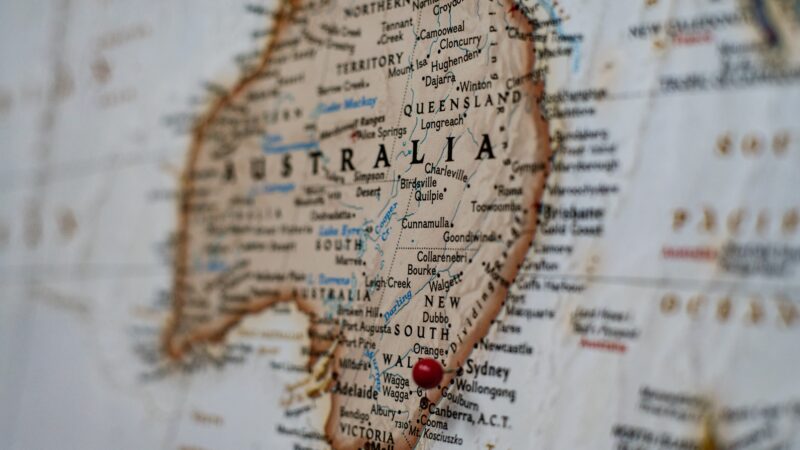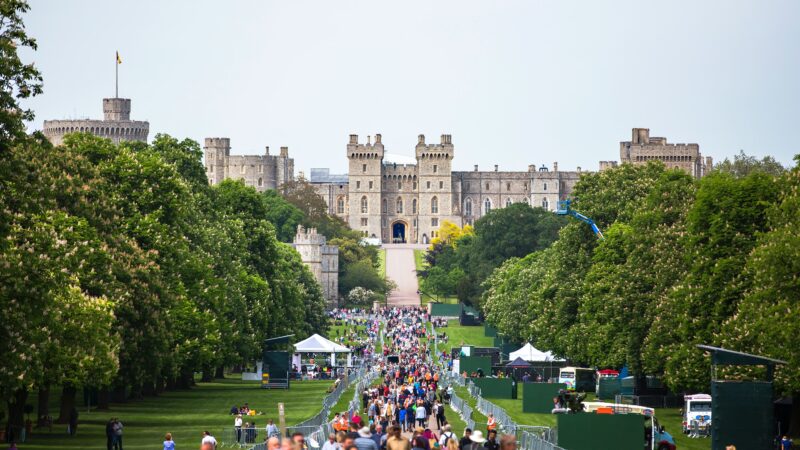The Conservatives Used to be the Party of Government and Ideas – Now They No Longer Are | Henry George
We are being treated to a clapping seal show presented as the Conservative leadership contest. The only candidate likely to alter Britain’s course into the iceberg of national decline and total senescence was Kemi Badenoch, so of course the MPs ejected her from the contest before the final three. For a moment it looked like it would come down to a face-off between Penny “Tory Blair” Mordaunt and Rishi “Green Card” Sunak, but instead we get Sunak vs Liz “Thatcher LARP” Truss. And of course, we are now witnessing the virus of zombie Thatcherism having colonised the brains of our prospective new prime minister. Each desperately tries to out-Thatcher the other, displaying the degeneration of the Conservative mindscape into a derivative pile of philosophical junk. It used to be that the Tories actually had ideas about how to govern and how to use the state to do this. Not anymore.
The Situation
Let’s survey the devastation of British national life. Inflation is at 9%, the highest for forty years. Energy prices are already a disaster, and are set to become truly catastrophic in the autumn and next winter. Productivity, bumping along for decades like a sea slug on the ocean floor, is falling into the Mariana Trench. Our levels of private debt are rocketing into the stratosphere. Our public debt is in orbit after the Covid-19 spend binge. Poverty rates are climbing and set to go even higher. The consequences in learning loss from Covid school closures for hundreds of thousands of children is an absolute disaster. A million immigrants settled here last year. Five million people have simply dropped out of the workforce and now subsist on benefits. Thousands of children have been abused, trafficked, raped, and even killed by grooming gangs. We lag behind other European nations for going back into the office. Quality of service from companies in the private sector and public services in the state sector has thudded face-first into the earth as a result. Our sainted health service is performing the worst it ever has, and is a black-hole of funding. The organs of the state have ceased to function: passport and driving licences are apparently a luxury rather than a necessity, while the main goal seems to be implementing ever more diversity and gender quotas. Our state capacity is therefore that of a poor south European country without the compensation of a pleasant climate.
The Solution?
And what is the answer presented to all of this? Why, tax cuts of course! This isn’t the sum total of either finalists’ policy proposals, but these are the prescriptions to our economic and social dis-ease that are being touted most vociferously by Liz Truss, the likely winner. And why would they not be? It’s always an attractive piece of political casuistry to tell people you’ll take less of their money one way while they’ll go on losing it in so many other ways. Given the British tax burden is the highest it’s been since the Second World War, this route to party popularity must seem like too good a golden road to electoral survival to miss. Never mind that the economic rationale for cutting taxes isn’t … completely watertight. It’s a sign of our political disconnect from economic reality that Sunak’s arguments against cutting all the taxes all the time has gone down like a lead-lined lifejacket with his prospective party voters. No, we must all hail our saviour Truss for her faith in the Laffer curve, an economic truism worked out on the back of a napkin and further distorted by politics towards the simplistic formula tax cuts always = higher tax revenue. Never mind that the ideology she adheres to represents the dissolution of social ties and the proletarianization of the middle class. Truss is a revolutionary in the mould of her hero Cromwell, a man who committed regicide. Yay, conservatism!
This tax-cut obsession underpins a religious vision where the small state is the worldly heaven towards which we must sacrifice and strain our sinews, an eternal truth applicable to all times and circumstances. The goal is to further liberate the individual from all bonds and constraints, enabling them to achieve this worldview’s highest good of maximum autonomy, never mind the social and cultural dissolution and chaos that it unleashes. Of course, since Thatcher’s time Conservatism as a party phenomenon has been seen as economically liberal, with nods towards some sort of cultural conservatism. This always amounts to little more than a rhetorical sleight-of-hand to distract from the economic preferences of the party elite, who themselves find the social conservatism of their members and those voters in the Red Wall embarrassing and morally retrograde. The Conservative vision of political-economy, culture and society is as impoverished as those it rules without governing are fast becoming.
Out of Ideas
What makes this all the worse is that when J.S. Mill epitomised the smug, self-congratulatory liberal style by calling the Conservatives “the stupidest party,” this was not actually true. But now the leadership candidates’ vague gestures at imitation Thatcherism looks set to prove Mill right. And yet it wasn’t always like this, and does not have to be like this. E.H.H. Green, in his magisterial historical survey, Ideologies of Conservatism, demonstrates that while the Conservative party may indeed not be as philosophical in a formal sense as the left, to say that Conservatives have always been an intellectually barren party is simply wrong.
As Green writes, “Study of Conservative intra-party debate throughout the party’s history, and especially over the course of the ‘Conservative century’, reveals that the controversy over Conservative ideas in the last quarter of the twentieth century was not unique in terms of either its nature or intensity.” The Conservatives at the century’s beginning debated tariff reform, social reform, land reform, industrial and agricultural productivity, Ireland and Empire.
Intra-party debate continued up through the 20th century, carried out in books, public and private party pamphlets and papers, speeches, articles and newspaper columns, as well as two book clubs, along with the Ashridge college of political philosophy. As Green rightly argues, “it may be that the Conservatives produce fewer ‘great texts’ (although they produce and refer to more than is frequently assumed), but if one sets aside the formal, ‘canonical’ notion of the forms of expression of political thought and examines speeches, policymaking discussions, exchanges of views and opinions in correspondence, and the construction of and response to legislation, the Conservatives’ engagement with ideas is clear, rich, varied, and extensive. Politics is about argument, and arguments are about ideas.”
This intellectual ferment was driven both by an innate interest in ideas shown by significant minority, and in reaction to changing events which demanded empirical observation and adaptation. This stemmed from a sense that to govern a great nation was a weighty and serious matter, fraught with danger and risk, one’s greatness not to be taken for granted or put at risk for ideological whim or purity. Leaders of the party actually thought things through in some depth. Even Prime Ministers engaged with the questions of the day with a depth that is incomprehensible in our time. Harold Macmillan wrote books on political-economy that reduce many such contemporary efforts to toilet paper status.
Thatcherism came from the more liberal side of the Conservative tent, but as Green wrote, it grew out of a scene rich in debate and discussion and had intellectual firepower behind it, whether one agrees with the substance or not. The network of thinktanks discussed in Richard Cockett’s book Thinking the Unthinkable communicated ideas from liberal thinkers like Hayek and developed policies from them. One can see these organisations as following in the wake of earlier arguments and institutions, seeing them as an example of what could be achieved and what to achieve it for. Now the Conservatives either serve up stale neoliberal centrism or cosplay Thatcherism.
Another Way
As Aris Roussinos recently argued, the cramped vision that the Conservative party now offers is far from the full picture, and does not have to be. A series of Conservative ministers and Prime Ministers gave a more expansive view of what constitutes the Conservative vision of the state, political-economy and their relation to society (which does exist and in which we live). As Roussinos writes, figures like Anthony Eden, Harold Macmillan, R.A. “Rab” Butler and others argued affirmatively for the use of the state to set the course for economic action, and against unbridled, brutal laissez-faire capitalism. A strong state was not, in their view, inimical to the Conservative tradition, and was in fact integral to insuring the social, political and economic conditions that enabled the good life for families and communities.
This attempt to chart a “middle way” between the Scylla and Charybdis of totalising socialism and atomising laissez-faire capitalism is one that sits well within the Conservative tradition, among whose political ancestors we can include the true One Nation philosophy that grew out of Benjamin Disraeli. His main effort was to reconcile and unite the “Two nations; between whom there is no intercourse and no sympathy; who are as ignorant of each other’s habits, thoughts, and feelings, as if they were dwellers in different zones, or inhabitants of different planets; who are formed by a different breeding, are fed by a different food, are ordered by different manners, and are not governed by the same laws . . . . THE RICH AND THE POOR.”
As I’ve written before, Disraeli rightly saw that what at the time was called “Manchester Liberalism,” of economic upheaval under the guise of prosperity and social turmoil presented as progress was inimical to social stability and the good life. Disraeli saw and put into words as no-one else could that “The great body of the people of this country are Conservative. I use the word in its purest and loftiest sense. I mean that the people of England, and especially the working classes of England, are proud of belonging to a great country, and wish to maintain its greatness.”
Rachel Wolf, in arguing that what is being offered now by the leadership candidates is the polar opposite of what won the party its 80-seat majority, echoes Disraeli when he declared that “The Tory party is only in its proper position when it represents popular principles. Then it is truly irresistible”. Disraeli saw rightly saw liberalism as a liquefier of social solidarity, “composed purely of wealth and toil, based on a spirit of rapacious covetousness.” As he wrote in his wonderfully scathing way, “Liberal opinions are the opinions of those who would be free from a certain dependence and duty which are deemed necessary for the general or popular welfare. Liberal opinions are very convenient opinions for the rich and powerful.” For Disraeli, the point of governing, and why Conservatism must actually govern through the state, was to “secure the social welfare of the PEOPLE.”
The Edwardian Bridge
Between Disraeli’s vision and that of Macmillan and his generation is a Conservatism of the early 20th century that arguably links the two. Green traces the development of a British Conservatism inflected by the Idealist school of philosophy espoused by T.H. Green at Balliol. The Historical school of economists grew from this scene. The group “first came to prominence in Britain in the 1880s, and from that point on developed a sustained critique of Classical economics and what it saw as its vulgarized derivatives, Manchesterism [laissez-faire liberalism] and Socialism.” The Historical school was against free trade and for protection where needed, saw nations, unions, trusts and groups in general as more important for political-economy than the isolated, supposedly rational individual of Smith and Ricardo, and supported state intervention to create the conditions for economic prosperity through industrial productivity and thereby ease social discontent and prevent unrest.
Conservative figures like Alfred Milner, Leopold Amery, J.W. Hills, and Arthur Steel-Maitland also came from this milieu, influencing more in the party. All were in favour of using the state for social and economic reform for the common good. Through the minor figure Arthur Boutwood, E.H.H. Green argues that these Conservatives saw the individual as an ethical being whose aim was the realisation of his potential, with self-realisation the sum of life. [HG2] The role of the individual and nation were inseparable: individual self-realisation was only possible through society, as citizens of the nation into which we are born, and which provides our social, cultural, political and economic context. The potential of the individual citizen and the nation were seen as realised by each other. Citizenship was “freedom for duty,” and therefore commitment to the common good.
As Green writes, “Boutwood argued that true freedom could only come through co-operative acts that were born out of a recognition and realization of mutual needs and goals.” According to Green, Boutwood saw the relationship between the individual and the nation as one where the individual and nation had a duty to each other, and if the nation “’be not effectually and equitably serviceable, it should be made so’.” The state was to enable this, and “to achieve its ‘moral conception’ by … ‘work that sustains and fosters [the nation’s] life, that builds up its people into serviceable manhood’”, to create the conditions for individual, communal and national opportunity. In other words, to govern, and to reform where needed for the reciprocal common good.
Boutwood was, again, a minor figure, but one whose writing encapsulated a view of society and political economy that galvanised many more significant men of the time, including eminent aristocratic party members and the Historical economists. The need for politicians and economists to lay the ground for individual and national prosperity and stability was best expressed by H.S. Fox when he wrote “’The State may become social reformer without becoming Socialist, but if the State does not become social reformer it will inevitably become Socialist’.” We face similar circumstances today, and it was because of this that the Historical school and more Conservatives than one would think were in favour of social reforms including pensions and workers rights and protections. As Green writes, ‘By 1914 [the Unionist Social Reform Committee] had proposed an extension of old-age pension rights, argued for minimum wages in certain trades, sponsored several schemes for working-class housing, and was close to presenting a blueprint for a national health service.”
The central aim of this kind of Conservatism, “was to provide the basis for a socially and politically integrative strategy that could overcome tensions and divisions within Britain.” To achieve this required cultivating national unity, “which in turn required acknowledging that the nation was … an organic entity. It was here that a positive role for the State was essential, in that the State was to ensure that no particular section of society was to be systematically undervalued or over-privileged. In practical terms this meant … social reform in the domestic sphere to alleviate the privations of the poorer classes, but carried through without recourse to class-divisive rhetoric or actions.”
Conclusion
There is a Conservative view of the state that runs through the true One Nation tradition descended from Disraeli, which underlay the worldview and policies of Edwardian Conservatism, Macmillan’s post-war Conservatism, and was buried by Thatcherism. We obviously can’t, nor should we, replicate exactly these kinds of Conservatism for today. But we must reignite the intellectual fire that galvanised Conservatism up to Thatcher’s time, and look again at the approach of the figures above towards the use of the state in service to our political, social, economic, and national life. The country is facing a range of problems that could very well prove disastrous or even catastrophic. These will not be solved or ameliorated by pursuing small-state dogma, but by the Conservatives learning to govern again. Whether that can be done remains to be seen.










Rishi Sunak Was a Worse Chancellor Than Gordon Brown
2020 was awful and most people would agree that they never want to experience that year’s events ever again. For Rishi Sunak, though, it was the highlight of his career as Chancellor of the Exchequer.
He was smooth and slick during those COVID press conferences and he just presided over the furlough scheme that ensured people could live off government money comfortably whilst the nation was locked down. Sunak quickly became regarded as future leadership material and those must have been the glory days of his career. 2020 was a nightmare for ‘ordinary’ people, but for Sunak, it was the start of a promising future.
But a week is a long time in politics. Things have quickly changed for this Tory hopeful; he stabbed Boris in the back recently and put himself forward to replace his former boss as Prime Minister. In fact, it is somewhat laughable that Sunak claims he would ‘govern like Thatcher.’ But that is because many of us who remember his time as Chancellor were not so fooled by the way the media portrayed his handling of the Government’s response to COVID. The price of lockdown is becoming all too clear now, and Sunak should be remembered as a Chancellor who was worse than Gordon Brown.
This comparison may not seem fair to some readers. Brown was Chancellor during an economic boom, and he occupied the role for ten years. Yet Brown also made terrible decisions that failed to prepare us for 2008’s events like selling our gold, failing to build enough homes, and ruining the UK’s pension system. As Tejvan Pettinger explained for Economics Help, the last Labour government made the mistake of running a budget deficit of 3 per cent towards the end of the 1997-2007 boom under Blair. If Labour had reduced public debt further, this would have given them more room for manoeuvre during the 2008-12 financial crisis.
In the Conservative Party, many Tory members and MPs make the mistake of thinking the 2008 recession was caused by Labour’s ‘reckless borrowing.’ Though it was an argument I supported during my early days of political activism, Brown did nothing in hindsight to cause the global housing collapse; that was caused by the irresponsible housing policy of the Clinton administration, and the consequences of subprime borrowing spread throughout the rest of the world as the global economy is hugely interconnected.
But did the ‘Conservative’ Party’s economic policies help cushion the blow of the Great Recession? Pettinger’s piece explains how borrowing levels actually got worse once the Tories gained power in 2010 onwards. That hardly sounds fiscally conservative, does it? View Pettinger’s article here if you do not believe me.
However, Sunak’s record no doubt makes Brown blush. Government borrowing during the 2020/21 fiscal year was predicted to hit around 400 billion pounds, the equivalent of between 17-20 per cent GDP, well above its 10 per cent peak at the height of the global financial crisis (which was when Brown was Prime Minister).
Of course, Sunak would argue his decisions were necessary to finance Britain’s lockdown during a global pandemic. Nonetheless, John Hopkins University found that global lockdowns failed to prevent the spread of COVID and recommended that they should not be used as an instrument to tackle pandemics in the future. Even The Daily Telegraph was reporting in August 2020 that lockdown itself killed more people than COVID. With stories now surfacing of children who failed to receive support from social services during lockdown, and people having missed cancer appointments in 2020-21, it is apparent that locking down the country, and the world, was a deadly, self-inflicted mistake.
Sweden and Florida are two useful case studies for parts of the world that did not lock themselves down and still tackled the spread of COVID. Sweden’s COVID death rate currently stands at 19,144, and though its population is smaller than the UK’s, which locked down hard, they were praised for not locking down by mainstream outlets like Germany’s DW, despite being a nation that is 88 per cent urbanised, but then again Britain’s urbanisation numbers are very similar. Sweden’s leading epidemiologist, Anders Tagnell, argued his country’s approach to the coronavirus should be based on evidence, and there was none to prove that lockdowns were working. That we will come to later.
Florida’s infection levels, meanwhile, were no different to California’s, which locked down hard, and now the state has been ranked as one of the best when it came to handling the pandemic, according to The Committee To Unleash Prosperity. In fact, Florida’s Governor, Ron DeSantis, recently said his state’s economy is experiencing a record surplus. This shows Sunak and Boris did not have to fund an economically catastrophic lockdown to tackle the coronavirus; they chose to go down this path.
In Brown’s defence, he had no control over America’s subprime housing bubble exploding, which wrecked the former Labour Chancellor’s budget plans, though he should have been more financially prudent in anticipation of a crash. That is his only mistake.
And now, Britain is literally paying the price for Sunak’s record borrowing. Sure, the unemployment rate currently stands at 3.8 per cent, one of the lowest rates since 1974, but that does not help those on low incomes in the face of surging inflation and high interest rates.
Interest rates were at a record low during the height of the pandemic in 2020, and as Norton Finance explains, when interest rates decrease, there’s an increase in borrowing. The Bank of England has a 2 per cent inflation target (a rule set by Gordon Brown, funnily enough), yet it has now exceeded 9.1 per cent. This means interest rates will have to rise to levels not seen since the 1980s to bring inflationary levels back down, which affects small businesses with large loans and provides consumers with less discretionary income, both of which will harm the economy in the short-term at least. Inflation itself has a huge impact on consumer spending levels, many of which are already being felt with surging prices in shops, etc.
Under New Labour, inflation hit 1.9 per cent in 2005, just below Brown’s target, and this was the highest level it got to before the crash. As expected during a recession, inflation climbed to 3.99 per cent in Britain during the 2008 crisis, but that is still far lower than it is now.
It pains me as a former Conservative Party member to write that a Tory Chancellor did a worse job at handling the economy in two years than a former Labour Chancellor who was in office for ten years did. However, as the Conservatives look to the future, they need to regain their reputation for economic prudence. That has been destroyed by Sunak’s financing of Boris’s overreaction to COVID. Sunak should not only be remembered as a worse Chancellor than Brown, but he should be regarded as the worst Chancellor in history in years to come.
Picture Credit